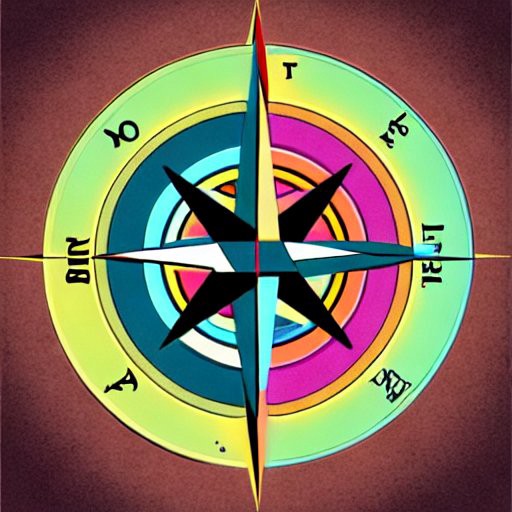Choosing Your First Programming Language: A Beginner’s Guide
 Ivan Karabadzhak
Ivan Karabadzhak
Are you wondering with questions: Which programming language should I learn first? What is the best coding language to learn first? Let me help with that.
Picking your first programming language can seem complex, especially if you're just getting started in that wonderful world. With so many options with unique advantages and drawbacks, it's not easy to know where to begin.
My first programming language
When I was 14, I started learning my first coding language, which wasn't easy. At one point, I almost gave up. The reason is, the internet suggested that "all languages are garbage, cool hackers use only C or C++". Learning programming from C/C++ isn't an easy task, and my suggestion is to start with something more straightforward and move forward if you like it and can see your goals more clearly.
As mentioned, choosing the first coding languages is complex. But by thinking about your interests and objectives, the job market, and the types of applications each language is typically used for, you can simplify your decision-making process and find the right language to start with.
Let's go to each point and discuss it a bit.
1. Consider your goals and interests

This step is vital in making an informed decision about where to start. By understanding what you want to achieve and what excites you, you can narrow your options and find the best-suited language.
Your goals may include building specific types of applications, such as mobile or web apps, or working in fields like data science or machine learning. Match your goals with the unique abilities of various languages to discover the one that helps you achieve your aspirations.
Your interests can also affect your decision. For example, if you enjoy working with visuals, you may prefer a language ideal for game or front-end web development. Python may be more appealing if you're more into data analysis and statistics. Choose a language that motivates you to learn by identifying your interests.
Remember, your interests and goals may change over time, and shifting your focus or even languages is okay if necessary. Start learning, enjoy the process, and have a clear objective to maximize your time and effort.
2. Popular languages are good options for beginners

Python and JavaScript are two fantastic options for beginners. They have huge communities and a lot of resources, videos, and tutorials. One of the most significant benefits of starting with a popular language is the size and diversity of its community. As a novice, you'll have access to plenty of resources and tutorials, including online documentation, code samples, forums, and educational materials. This makes it much simpler to learn the language, resolve issues, and locate solutions to problems that you may encounter.
Python is a versatile, high-level programming language for data science, machine learning, and web development. The language features a simple, readable syntax and an extensive standard library, making it easy to learn and utilize. Python also has numerous libraries and frameworks like pandas, scikit-learn, and Tensorflow, making it incredibly powerful. The Python community is very active and supportive, and you will find a lot of learning materials, tutorials, and documentation to help you learn more about the language and its applications.
JavaScript is a widely-used programming language mainly used to develop interactive and dynamic web pages and applications. JavaScript is also known as the only language that can run on the browser, making it the perfect choice for front-end development. The language boasts many frameworks and libraries like React and Angular, which make it very popular for web development. Furthermore, JavaScript can be used for server-side programming with NodeJS. With a huge community and plenty of resources, learning JavaScript can be a straightforward and enjoyable experience.
By the way, I have two popular articles with code examples of JavaScript and Python. Would you check them?
3. Job market and the types of applications

When selecting your first programming language, consider the job market and the types of applications typically developed with that language. Different languages are used for various purposes, and the type of application you want to build can impact which language is most appropriate for you to learn.
To assess the job market for a language, examine the number of job postings that require it. For example, Python is often used for data science and machine learning, and it's in high demand in these fields. JavaScript is often used for web and front-end development, commonly used to develop interactive and dynamic web pages and applications. Learning one of these languages is a good choice if you want a job in these fields.
Consider the types of applications developed using a particular language. For instance, learning JavaScript is wise if you're interested in building web apps due to its popularity in web development. Conversely, Python is more appropriate if you're interested in data science and machine learning. Many languages have multiple purposes, and you can find a job in a specific field with various languages.
Therefore, consider which language is more commonly used in the industry or field you wish to work.
4. Learning curve

When selecting your first programming language, consider the learning curve. Various languages have different levels of complexity, and some are easier to learn than others. For a beginner, starting with a language with a relatively straightforward syntax may be more beneficial. This can help make the learning process less frustrating and more enjoyable.
Python, for instance, has a simple and readable syntax that makes it easy to understand the code and write your programs. It has a simple grammatical structure and easy-to-understand ways of performing common operations. Furthermore, some languages have many resources, tutorials, and documentation available that can help you get started quickly. This makes it easier for beginners to learn the language and build their programs.
Other languages, such as C++ or Java, have a steeper learning curve, with more complex syntax and a greater number of features and concepts to learn. These languages may require more time and effort to master, making them more challenging for beginners. However, once you have mastered the language, you'll be able to build more complex applications.
Bear in mind that the learning curve of a language is not the only factor to consider when selecting your first programming language. Other factors, such as community support, the job market, and your interest in projects, are also critical. Therefore, the best approach to choosing a language would be to weigh the pros and cons of each and make a decision that best suits your personal situation.
5. First programming language & Fun?

Learning your first programming language can be an exciting and rewarding experience, but it can also be challenging and frustrating at times. However, enjoying the process and having fun while learning is essential.
One way to make the learning process more enjoyable is to find a language that aligns with your interests and passions. For example, if you're interested in web development, learning JavaScript can be a fun and engaging experience. On the other hand, if you're interested in data science and machine learning, Python may be a more intriguing language to learn.
Another way to make learning fun is to set small and achievable goals for yourself. This can help you stay motivated and make the learning process more manageable. Celebrate your achievements along the way, and don't be afraid to make mistakes as they can be valuable learning experiences.
In summary, having fun while learning your first programming language is crucial. Finding a language that aligns with your interests and passions, setting achievable goals, and celebrating your progress can make the learning process more enjoyable and rewarding.
Summary
In summary, while learning a programming language may require effort and dedication, ensuring you're having fun and enjoying the process is essential. This will help you stay motivated and progress, and it will make it more likely that you'll continue to learn and use the language in the future.
Do you have any questions? Ask them in the comments section below.
Subscribe to my newsletter
Read articles from Ivan Karabadzhak directly inside your inbox. Subscribe to the newsletter, and don't miss out.
Written by

Ivan Karabadzhak
Ivan Karabadzhak
Want to become wealthy by CODING 🚀 Fan of Remote Work ✈️ Was Freelancer for 12 years 💻 Build AI Telegram Bot: https://chatty-robo.help